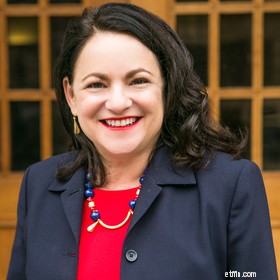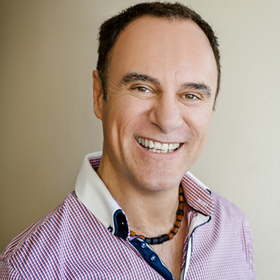COVID-19後の世界に投資する方法は?これは誰もが求めていることです。パンデミックは私たち全員を驚かせました。多くの企業が閉鎖され、制限が解除されるのを待っている企業もあれば、すでに破産している企業もあります。
経済は危機を経験しており、状況は変化しています。観光業(ホテル、航空会社、クルーズ船)、イベント企画、美容院などの非本質的なビジネスなど、パンデミックの前に繁栄していた業界は非常に大きな打撃を受けており、彼らがなんとか戻ってくるかどうかは定かではありません。パンデミック後の彼らの足はなくなります。
現在、大多数の人々がオンラインで買い物をしているため、実店舗や商業用不動産でさえも苦しんでいます。以前はオフィススペースを借りていた企業が、従業員が自宅から離れた場所で仕事をすることを許可しています。
これらの変更のうち、一時的にいくつ、永続的になるのかはわかりません。非常に多くの不確実性があるため、市場がどのように進化するかを予測することは非常に困難であり、ほとんど不可能です。
以下のDrWealthアプリをご覧ください:
そのため、私たちはMinuca Elenaを雇って、45人の金融専門家に連絡を取り、彼らに尋ねました。
彼らが何を言わなければならなかったかを見るために読み続けてください。

COVID-19以降の世界に投資する最良の方法は、ファンドで多くの企業を購入できる低コストのインデックスファンドまたはETF(上場投資信託)を購入することです。これは、投資ポートフォリオの多様化に役立ちます。
株式市場に受動的に投資することで、長期的にキャピタルゲインと配当を生み出すことができます。市場のタイミングが心配な場合は、ドルコスト平均法を試して、投資を一定期間に分散し、市場の高値と安値で購入することができます。
これはリスクを軽減するのに役立ち、株式を購入するのに最適な時期を見つけることを心配する必要はありません。

個人投資はCOVID-19以来根本的に変わっていません。人々は、支出額、退職時、社会保障の取り方、税金の計画など、自分たちが管理できる分野に焦点を当てる必要があります。あなたの個人的な決定は、株式市場の浮き沈みよりもあなたの経済的成功にはるかに影響を及ぼします。
投資の決定に関しては、どの程度のリスクを取り、株式市場にどのように反応するかを制御できますが、リターンを制御することはできません。適切なレベルのリスクから始めて、銀行に十分な資金を確保すると、株式市場を打ち負かすことがこれまでに証明された唯一のこと、つまりリバランスを実行する可能性が高くなります。
私たちの投資家は2019/20年冬に株式市場からリバランスし、2020年3月下旬にCOVID-19株式市場の安値近くで市場にリバランスしました。市場が8月下旬に再び史上最高値に達した今、私たちはクライアントを株式市場からリバランスしました。市場のタイミングを計ったり、下落することを予測したりするのではなく、適切なレベルのリスクを維持するためです。

連邦準備制度がゼロ近くの金利を下げるとき、債券はリターンの方法でほとんど支払いません。そのため、投資家は他の場所に目を向け、たとえば株式市場に参入して株価を押し上げます。これまでのところ、株価が経済全体から離れているように見える理由の1つです。
投資家は不動産にも目を向けています。住宅価格は2019年7月から2020年7月まで5.5%上昇しており、CoreLogicから入手できる最新のデータです。しかし、その全国平均は物語の半分しか語っていません。小都市、郊外、地方の不動産価格は前年比で上昇しましたが、最も高価な都市(ニューヨークやサンフランシスコなど)の不動産価格は低迷しました。
株式や不動産の価格が非常に高いため、収入を生み出す不動産と投資家への短期購入リハビリローンの2つの分野に資金を投入しました。市場の家賃と価格に基づいて収益が予測可能であるため、前者に投資します。賃貸収入計算機を使用すると、文字通り数秒でキャッシュフローの数値を実行できます。
住宅所有者の住宅ローンとは異なり、強制力を維持できるため、後者に投資します。貸し手は、パンデミックの間、不動産投資家を差し押さえることができます。また、不動産価格が上昇し、ローンとバリューの比率が低下しているため、リターンがほとんどの場合よりも高い場合でも、これらのローンはほとんどの場合よりも安全です。

私は常に、幅広く分散された低コストのインデックスファンドを使用してバイアンドホールド投資家を務めてきました。ドルコスト平均法のメリットを享受するために、定期的に投資を行うことを信じています。さまざまな資産クラスの重み付けは、常に投資家の保有期間によって導かれる必要があります(年をとるにつれてより保守的になります)。
ポストCOVIDの世界では、私は今でも同じ基本的な哲学を信じています。しかし、パンデミックのようなブラックスワンイベントの兆候に細心の注意を払うことも理にかなっていると思います。
通常、私は短期間の取引を推奨していませんが、非常にネガティブな兆候が見られる場合は、短期間の財宝のような非常に安全な資産クラスに一時的に移行することを検討するのが理にかなっています。

現在の市場で投資するのに最適な場所の1つは、特にパンデミックの影響を大きく受けている地域の不動産です。
「安全な地域」は、ウイルスの影響を受けにくい地域に住むことを求めているため、不動産販売が急増しており、その地域の不動産市場は急速に売り手の市場になっています。
ただし、ウイルスの影響を最も受けている地域では、購入者に有利な不動産の価値が見られます。多くの場合、これらの地域は、パンデミック前に需要が高かった地域であり、パンデミックが終了すると再び需要が高まる可能性があります。

コビッド後、投資する最良の方法はドルコスト平均法です。この戦略により、投資経験を自動化することができます。毎月割り当てられた金額を投資口座に投資することで、ほぼ不可能な市場の「タイミング」を回避できます。市場が上昇するか下降するかを100%の自信を持って予測することはできません。なぜそうするのですか?
ドルコスト平均法を使用すると、浮き沈みを回避できますが、それでもダウンマーケットへの投資を活用し、市場が過去最高に近いときに少しだけ投資します。時間外労働、ドルコスト平均法はあなたが先を行くことを可能にします。あなたはまだ投資しているので、市場がその安値に近いときに資本を得ることができます。現在の市場環境に関係なく、DCAは投資を続けます。
さらに、この戦略は、伝説のウォーレン・バフェット自身によって使用されています。したがって、オマハにオラクルのように投資したい場合は、ドルコスト平均法から始めてください。使いやすく、パワフルで便利です。安心してご利用いただけます。この戦略を最大限に活用するための最良の方法は、2〜3の低料金のインデックスファンドに投資することです。これにより、財務目標とリスク許容度に沿った特定のインデックスに分散して投資することができます。

彼らは、不況は「あなたの隣人が仕事を失うときであり、不況はあなたもあなたの仕事を失うときである」と言います。
オーストラリア経済が不況に陥っているとは思いませんが、多くの人がすでに職を失っています。経済的な二日酔いはほぼ確実です。
これが不況を乗り切るための私の次の秘訣です。
現在のイベントは私たちのコントロールの外にあります。これについては何もできませんが、自分ができることに集中し、健康、人間関係、教育、精神的な成長など、自分でコントロールできる生活の分野で忙しくしていることが重要です。
これを改善と変更の機会と見なしてください。これには、キャリアの変更、追加の教育、新しいニーズ/ビジネスを見た後に新しいビジネスを開始することさえ含まれる可能性があります。良い例は、現在手指消毒剤を販売している蒸留所です。
発信を節約するために、お金がかかるすべてのものを確認します。これには、電話プラン、クレジットカード、電力会社、家賃および/または住宅ローンの費用が含まれます。
あなたが達成した節約(ヒント3を参照)で、これらを蓄積することができ、緊急時に使用できるアカウントに保管してください(あなたの費用の3-6ヶ月は節約するのに理想的です)。すでに緊急資金をお持ちの場合は、これらの貯蓄をローンの返済に振り向けるか、それを使って投資を積み上げてください。
助けを得ます。あなたもアクセスできる無料の金融カウンセラーサービスがあります。

あなたが新しい投資家で、COVID後の投資をしたい場合、最も安全な方法はハウスハッキングです。地下室またはデュプレックスのある家を購入して、この余分なスペースを借りることができます。住宅ハッキングはあなたがあなたの住宅ローンを賃貸収入で支払うことを可能にします、それはあなたがあなたの住宅費を排除することを意味します。毎月その金額を節約することで、COVID後の不況が発生した場合に経済的に打撃を受け、それでも浮かんでいることができます。
その後、不況が過ぎ去り、経済的に回復したら、その物件から引っ越して賃貸することができます。あなたが住宅ローンを支払わないことから節約したお金で、あなたはあなたの次の家の頭金のために十分であるはずです。賃貸物件から受け取るキャッシュフローは、家族のために新しい家の住宅ローンの支払いに役立ちます。

COVID 19以降では、数字が積み重なって十分なバッファーが配置されている物件に入る際には、さらに注意を払う必要があります。リスクを最小限に抑え、市況に関係なく不動産を長期にわたって保有できるようにするための主な要因が手頃な価格である分野に投資します。
失業率がそれほど大きな打撃を受けていない地域を選択してください。市場は依然として需要に応じて活発であり、これらの地域の賃貸市場は手頃な価格のために空室率が低くなるためです。これにより、不動産価格が安定し、空室率が低くなります。これは、投資家として望むものです。
人々が自宅で仕事をすることに適応し、都市への通勤の必要性が減少しているので、地方を見てください。手頃な価格は、地域、特にジーロングのような地域ではるかに高くなっています。ジーロングは、地域であるというすべてのメリットと助成金をまだ受けていますが、ビクトリア州で2番目に大きな都市です。
オーストラリアは都市中心の国になりつつあり、自宅で仕事をする柔軟性があるため、地域の手頃な価格は、あなたが求めている物件を手頃な価格で手に入れることをより望ましいものにします。市。

COVID 19の前、後、または最中に話しているかどうかにかかわらず、長期的な戦略に従うことをお勧めします。
そうすれば、株式市場に投資している場合、必ずしも戦略をあまり変更する必要はありません。
歴史的に、株式市場では、インフレ調整後の年間平均収益率が約7〜8%でしたが、この収益率には多くの浮き沈みがありました。
そうは言っても、COVID 19の間に発生し、COVID19以降も発生し続ける可能性のある消費者の傾向に注意するのが賢明です。
主な傾向のいくつかは、在宅勤務とオンラインショッピングへのシフトです。ビデオ会議ツール、ソーシャルネットワーク、ストリーミングサービス、オンラインショッピングなどを提供するテクノロジー企業は、大幅な増加を遂げています。
パンデミックはこれらの傾向に大きな影響を与えましたが、それらは以前にすでに起こっていました。これは、それらがとどまるようになったことを示唆しています。
また、パンデミックによって最も大きな打撃を受けた業界のいくつかが再び上昇する可能性が高いことも注目に値します。
COVID 19以降の世界で、航空会社、ホテル、イベントビジネスが再び需要となる観光業界について話しています。

最善の戦略は、継続的に投資を続けることです。市場のタイミングを計ろうとしてもうまくいきません。また、タイミングのわずかなエラーでも、継続的な投資を続けた場合よりも収益が少なくなる可能性があります。
個別の株式に投資している場合(直接販売の529プランでは投資できません)、一般的なアドバイスは、旅行、食事、娯楽への投資を避けることです。これらは、パンデミックが遠い記憶になるまでうまくいかないセクターです。それ以外の場合は、広範なマーケティングインデックスに投資することは、優れた長期戦略です。
全体として、ボラティリティが高まるため、リターンの増加だけでなく、リスクの増加に直面することになります。今日は、期待できる大きな揺れの良い例です。リスク許容度が胸焼けに対処できない場合は、元本を失うリスクのない安全なものに投資してください。
いつものように、コストを最小限に抑えることが、純利益を最大化するための鍵です。

人々がコロナウイルス感染後の世界への投資についてアドバイスを求めてきたとき、私の反応は常に同じです。パンデミックの前にあなたがしていたことを正確に続けてください。
引退のために投資している私たちの人々は長いゲームをプレイしており、この投資戦略への何十年にもわたるコミットメントの間に、高値と安値の両方が存在することは避けられません。今は間違いなくかなりの安値ですが、いつ終わるかわからないかもしれませんが、歴史は私たちが反対側に出て、市場は最終的に安定することを示しています。
この傾向が投資期間全体で数回繰り返される可能性が高いという事実は(パンデミックとは関係がないことを願っていますが)、これらの浮き沈みに慣れている必要があることを意味します。 COVID-19後の投資方法を変更することを検討している場合は、リスクの食欲を再検討し、それに応じて投資戦略を調整するときが来ました。
さらに、市場のパフォーマンスに関係なく、定期的に投資を続ける人は、引退するまでに最強のポートフォリオになってしまうことが確立されています。これは、私たち全員が自分自身を見つける現在の状況と、COVID-19後の世界の両方に投資するための最良の方法は、まったく同じであることを示しています。

ウォール街のsupremosで利用されている専門家の投資手法ほど魅力的に聞こえないかもしれませんが、住宅ローンなどの最大の家計の請求書でより良い取引をするために時間を費やすだけで大きな違いが生まれます。
株式市場で稼いだり失ったりするお金はありますが、住宅ローンの金利を下げるだけで自分のためにどれだけのお金を稼ぐことができるかに驚かれることでしょう。あなたの率の半分のパーセンテージポイントでさえ、ローンの存続期間にわたって何万もの節約を生み出すことができます。それは貸し手にとってはるかに少ないお金であり、あなたが費やしたり投資したりするためのより多くのお金です。
厳しい経済状況では、信頼できる借り手は貸し手にとって非常に価値があります。したがって、良好な信用履歴と十分な資産が家にある場合は、低金利で彼らと交渉するのに最適な立場にある可能性があります。
同様に、保険、電話プラン、インターネットプラン、および公共料金を年間数千ドル節約できます。これらの製品の市場はかなり速く動いています。たまに見回すのをやめないと、いくつかの素晴らしいオファーを見逃す可能性があります。

COVID 19以降の世界への投資について考えるとき、説明する必要のある1つの部分からなる戦略と1つの部分からなる戦術があります。戦略的計画に関しては、投資を検討する必要があります:
長期的な投資を念頭に置いて
ゲームプラン、または理想的には将来の目標に向けた財務プランを用意します。使用している機器に集中しすぎると、目標から遠く離れてしまうことがあります。
傍観者の現金を忘れないでください
誰もが緊急資金を必要としていますが、今はその緊急資金をもう少し大きくする良い機会です。それが最初に行うことは、あなたの投資に何が起こっても、あなたの日々は財政的に同じであるという安心感を与えることです。第二に、業界で言われているように「ドライパウダー」を提供するため、投資機会が発生したときにその機会を利用できます。
税金は常に重要です
人々は、市場に参入することが不況を利用するための最良の方法であると考えていますが、税効果の高い方法で物事を動かす機会もあります。非退職口座をお持ちの場合は、年間3,000ドルの控除を受ける可能性があります。または、税引き前の口座をお持ちの場合は、Roth変換を行うことで、将来的に大幅な税金の節約になる可能性があります。
COVID 19は市場に多くの変化と変動性をもたらしましたが、財務計画の基本は依然として残っています。

持続可能な投資は持続不可能な投資よりも回復力があり、データがそれを裏付けていると私は信じているので、有意義な方法で資本を展開しようとしている人への私のアドバイスは、個人的な利益と道徳を彼らが行う投資の種類と一致させることです。
これが実際に意味することは、彼らが使用するビジネスと製品の倫理と企業行動についてデューデリジェンスと調査を行うことです。
大規模なテクノロジー株は、その速度で上昇し続けると誰もが予測できますが、インパクトETFやE.S.G.のような真に持続可能でインパクト指向の機会を検討している長期投資を探している場合は、インデックスは、持続可能なファンドやビジネスに幅広い賭けをするための優れた方法です。

このパンデミックは、自宅からリモートで作業することが実行可能であり、多くの場合、好ましい作業方法であることを示しました。人々への私の提案は、彼らが海外で働いている間に彼らができるフルタイムの遠隔の仕事を得るために彼らの時間と努力を投資することです。私は、地理的裁定取引を使用して貯蓄と投資を増やすことを熱心に支持しています。
ファイナンシャルプランナーがどんな財政状況でも推奨する最初のステップの1つは、毎月の生活費を削減することです。すぐに使えるが、コストを大幅に削減する非常に効果的な方法は、より安価な国に移動することです。飛行機に飛び乗るだけで、毎月の経費を最大70%削減できます。
米国の給与に取り組んでいる間、海外での生活費を削減することで、年間2万ドルから3万ドルを節約できます。これは、株式市場に投資されたお金、または学生の請求書の支払いに使用されたお金です。
一例として、私は5年間で40か国を訪問しながら、10か国に住んでいます。私はお金を節約するために永遠に旅行します。一例として、米国の平均給与は月額3,700ドルです。 1月以来、私はフィリピンでの生活を楽しんでおり、月額約1500ドルを費やしていました。
フィリピンで遠隔地の仕事をしている人は、月に2,200ドル余分に投資する可能性があります。フィリピンでの生活費の低さには、活発な社会生活を送る素晴らしい生活、町のトレンディな場所にある素敵なアパート、頻繁な外食、メイドサービスが含まれます。
もっと投資して節約したいですか?パンデミックが始まった当初の株式市場の大まかな数か月は、私たちが経済的な大まかなパッチを拡大することになるだろうと私に確信させました。月額1500ドルよりも生活費が安い長期ビザを取得できる国をいくつか調べました。
私が選んだのはトルコです。トルコでは、毎月の生活費が月額800ドルから1000ドルに下がると見積もっています。先月、私は20時間の国際線に勇敢に立ち向かい、トルコのアンタルヤに移動しました。

COVID 19後の世界に投資する最良の方法の1つは、将来の市場のショックからヘッジされる高度に分散されたポートフォリオを構築することです。株式市場は2020年に非常に不安定であることが証明されており、債券利回りは過去最低を維持しています。
オルタナティブ投資は、ポートフォリオの一部を、株式や債券と相関関係のない有形資産に割り当てるメカニズムを提供します。これにより、現在の利回りと長期的な上昇の両方を生み出すことができます。非相関資産の例には、森林地帯、貴金属、不動産、農業などがあります。
さらに、COVID-19は、経済の多くのセクターが食料流通を含む脆弱なサプライチェーンに大きく依存していることを示しました。経済が不確実な時期に繁栄する事業に投資することは、市場の調整中に引退した巣の卵を無傷に保つために不可欠です。
さまざまなオンラインプラットフォームにより、投資家は、上場証券に固有のボラティリティから隔離されたまま、アグリビジネスやヘルスケアなどのセクターでより堅牢なインフラストラクチャの構築に取り組んでいる民間企業にアクセスできます。
食料を安全で誰にとっても手頃な価格に保ちながら、サプライチェーンの混乱に対応するためにアメリカの生産をシフトするには、再生農業や地元の持続可能な農業への新たな投資が必要になります。

今日の市場と経済情勢への投資は容易ではありませんでした。一方では、FEDや現在実施されている金融緩和政策と戦うことを望まないでしょう。
一方、FEDは数兆ドルを印刷しており、ドルの価値は近い将来、確実に下落するでしょう。私たちも現在不況にあり、「実体経済」はリバウンドの見通しをほとんどまたはまったく示していません。
同様に、株式市場は陶酔しているように見え、他の資産クラスは非常に高く評価されているように見え、実質金利はマイナスです。心に留めておくべき非常に多くの異なる変数で、あなたは投資家として何をしますか?
あなたのお金の機会費用を多様化して評価します。近い将来、インフレが誰にとっても主な関心事であるため、すべての現金に座りたくはありませんが、株式のようなリスクが高く価値の高い資産だけに座りたくはありません。
私の推奨事項:それ自体で支払い、長期的に成長する良いキャップレートで不動産に投資します。あなたがそうすることによって予想されるインフレベンチマークを上回っていないので、高利回り普通預金口座にお金を残さないでください。
勝者を株式市場にとどめますが、現金を受け取り、他の資産と多様化することを恐れないでください。それは、暗号通貨、バリュー&配当株(経済の不確実性によって深刻な影響を受けない)、債券などです。

これは少し退屈に思えるかもしれませんが、COVID後の世界に投資する最良の方法は、COVID以前の世界に投資する最良の方法と同じであると私は信じています。
調査のほとんどは、最高の投資顧問でさえ、サービスのコストもカバーするのに十分なマージンで一貫して市場を打ち負かすことができる方法で、将来の長期を予測できないことを示しています。
私は個人的に、クライアントはお金を稼ぎ、主要な収入源として何をするかに注意を向け、それから大騒ぎせずに富を成長させるべきだと信じています。

COVID 19後の世界の投資環境を見ると、答えよりも多くの質問があるようです。手始めに、ここ米国では、連邦準備制度は、今後5年間、金利が信じられないほど低くなる(事実上0%)ことを示しています。
大不況に続いて、低金利環境は大量の投資に拍車をかけ、経済の最も打撃を受けたセクターである不動産で特に力強い回復をもたらしました。
ただし、今回は特に不動産については、住宅スペースでの活動が増えています。低金利は、郊外のより多くのスペースを支持して都市からの大規模な脱出をリードしている都市居住者にとってより魅力的であるように思われます。商業用不動産に関しては、2008年から2009年とは異なり、多国籍企業はリモートワーカーのランクを上げ、物理的なオフィススペースを減らすことを発表しました。
COVID 19は、テクノロジー(具体的には、リモートワークとリモートミーティング)の採用を加速させ、多くのアナリストが数年先のことを予測しました。これがどのように翻訳され、私たちの市場に浸透するかは、依然として非常に議論されている質問です。
現在のビジネス(および金利)環境における敗者:商業用不動産、エネルギー会社、債券投資家
勝者:誰の推測でも。

COVID-19のパンデミック後、天文学的な成長の準備が整っているセクターを正確に特定することが重要です。これには、神聖な予言能力は必要ありません。履歴データは、投資スペースのコロナウイルスの地平線の向こうにあるものの十分なビューを提供することができます。
いつものように、パンデミックの最中とその後に投資する最も回復力のあるセクターは、テクノロジーのニッチです。ここで最もハンサムな2つの業界は、自動化とeコマースです。
テスラのようなテクノロジーに傾倒している企業が2020年に指数関数的に急増するのを見てきました。テスラのシェアが、2020年だけで500%まで急上昇したのは当然のことです。ズームも99年のようにパーティーを開いており、第2四半期の結果によると、利益は3,300%増加しています。
これらの業界とは別に、パンデミックが解消されるとすぐに輸送は大胆な上昇に向けて設定され、ユニオンパシフィック、J.B。ハントトランスポートサービスのような人たちは復活の準備ができています。
輸送ニッチに投資する最も魅力的な企業に目を向けるときは、ロジスティクス企業、航空貨物会社、航空会社の一般的なクラスターを超えて、輸送会社の燃料経済、債務(機器取得の膨大な必要性を考慮)などの詳細に焦点を当てる必要があります)、COVIDの対応、およびニッチでの競争に現在どれだけうまく対処しているか。
個人的には、自動化に傾倒している運送会社が好きです。

3月以降の株式市場の最近の上昇のほとんどは、ワクチンの取り組みに関与している技術といくつかの医薬品によって低迷しています。
私が持っている質問は、お金の流れはどこにあるのかということです。今では、誰もが必要な技術のアップグレードを手に入れ、物事が正常化し始めたらそれらを縮小することさえできます。
今年最もパフォーマンスの悪い5つのセクターのうち3つは、公益事業、消費者の裁量、および消費者の非周期的セクターです。市場が落ち込んだ場合のリスクを軽減するために、これら3つの良い追い風のすべてがあり、物事が正常化し始めるにつれて、より強力なセクターの一部になると私は信じています。
公益事業は非常に安定した産業であり、かなり良い配当を捨てています。連邦準備制度はほぼ0の金利政策を継続しているため、債券とCDの金利は非常に低くなり、退職者や年配の投資家は配当の良い信頼できる株に押し込まれます。これが公益事業の出番です。誤解しないでください。ここで技術を使ったときと同じように上昇が見られますが、ポートフォリオを埋めるためにある程度の安全性と強力な配当が得られます。
消費者の裁量と非周期的なもので、私の信念は、人々は物事が始まって以来、彼らが延期していたものを購入し始めるだろうということです。米国市民の貯蓄率は20年以上で最高であり、そのお金は再び流れ、主に消費者の裁量に委ねられ、非循環的でも消費者支出の増加による上昇が見られると思います。
テクノロジーセクターで重要なポジションを持っていて、それらの利益の一部を、あなたを保護し、おそらく次の大きなセクターになるはずのより大きな打撃を受けたセクターに移し始める場合、これはおそらくポートフォリオのリバランスを検討する絶好の機会です。
とにかく、私はREITを避けたいと思います。多くの人々との話し合いの中で、彼らの会社はオフィススペースの売却、賃貸スペースのペアリング、そしてはるかに小さな設置面積をカバーするより柔軟なスペース設定への移行を検討しています。

The best way to invest in a post-covid world is the same as how you would invest in a pre-covid world. Stay the course and don’t abandon your investment strategy. A portfolio that is well diversified and has proper risk exposure based on your tolerance is built to withstand good and bad markets.
Many investors become tempted to reduce their equity exposure and go to cash or bonds because of the perception of where the economy is headed and the impact it may have on their portfolio.
Luckily, history is on our side when it comes to the years that follow a recession. Of the 15 US recessions that have occurred over the past century, 73% of the time, returns on stocks were positive two years after a recession began.
Deciding to change your investment strategy shouldn’t be driven by trying to guess what the market might do, particularly during a recession. Succumbing to this strategy could potentially derail your long term financial goals.
By staying disciplined and revisiting your investment strategy periodically, rather than only during periods of high market volatility, you give yourself the opportunity to have a better investment experience.

The technology sector is on fire right now because more and more people are engaging in e-commerce as a way to order products and services while staying at home, so a juggernaut like Shopify might be a good investment, or Amazon, Google etc. That said, apart from choosing specific companies, I still recommend diversity no matter what kind of instrument or company people choose to invest in.
While emerging technology is always attractive in the companies behind work from home products and services like Zoom are taking off in terms of share price, it’s still important to balance out the overwhelming impact coronavirus is likely to have on the economy going forward. That means balancing your portfolio appropriately to account for hedging against the market and investing in things like precious metals or even digital currency if you believe in it.
As always, you still want to keep some of your money and blue-chip stocks like Walmart or index funds like the S&P 500, and if you have the money, perhaps a real estate investment might do you well. People always need somewhere to live regardless of the state of the economy.
As a last bit of advice. Keep in mind that the stock market and nearly every other form of investment has been skyrocketing since the coronavirus pandemic grabbed hold of the whole world in mid-March. As Warren Buffett says, ‘be fearful when the markets are greedy, and greedy when the markets are fearful’.

A post-Covid world is one of financial repression where central banks favor borrowers over savers by keeping short-term interest rates low and doing what they can to keep long-term interest rates low.
In that environment, cash flow yields and expected investment returns are low. Savers will have to save more. They will have to take more risk by keeping a higher allocation to stocks in order to benefit from earning growth.
Investors need to focus on total return, not just income. There remain some attractive income strategies such as preferred stocks and dividend-paying common stocks.

Although property investments have been fluctuating for many years due to various declines, the general trend suggested that capital injections into real estate were on the rise. We do not see any reasons why this trend should reverse. Property still generates good relative returns compared to other asset classes.
Let’s look at the most resilient vehicle for investing in real estate – REIT. These trusts acquire, build, and manage properties through pooled investments. Investors buy REIT stock and become co-owners of a property.
COVID-19 impacted the REIT segment. For instance, real estate investment trusts in the USA went down by 8.2% on average in mid-May due to lower rent collection in all sectors. In April, REITs collected only 71.4% of expected revenue from shopping centres and retail spaces.
Now that lockdown is being gradually lifted, the largest market players in the USA and UK are re-emerging (e.g. Simon Property, Segro Plc). Some REITs generate steady revenue even in a crisis and recover faster than others. During the pandemic, these are the trusts focusing on data centres, storage spaces, and healthcare facilities.
REITs are resilient to market fluctuations and interest rate changes, as their loan-to-value ratio is sustained at no more than 30–40%. Following the 2008–2009 recession, REITs have been reducing financial leverage and increasing owned capital. When the recession set in, REITs were using 60–70% of borrowed funds to finance their activities.
During the 2020 global crisis, REITs are outperforming shares.
In early June, REIT indices rose almost by 9%, whereas S&P 500 and Dow Jones Industrial went up by 8.3%. REIT indices are expected to trend steadily upward faster than others, as was the case during the 2008 financial crisis.
REITs can bring higher returns in a crisis because they are tied to the real estate cycle, which lasts about 18 years. Shares are impacted more by the ups and downs of the economy – underperforming during recessions while real estate investments generate steady returns.
A REIT is a very good independent piece of an investment portfolio after the crisis. For the last twelve years, REITs showed the least diminishing returns compared to other liquid financial instruments, as well as resilience to interest rate changes and inflation, fast successful recovery in the post-crisis periods, and steady dividend payouts.

Based on my own research and what I’ve been noticing with my existing investments, here is my opinion on the best way to invest.
I’m keeping a lot of my net worth in appreciating assets with little volatility such as real estate, gold / silver, and well established blue chip stocks or ETF’s. I’m also keeping at least 25% of my net worth in cash so I have a rainy day fund.
The key to this strategy is that I have enough cash on hand for immediate purchases and everyday life expenses. But, at the same time, enough invested in assets like stocks or real estate which will appreciate to protect myself from inflation.
The FED recently released more dollars into the money supply and has spoken about averaging a target for inflation at around 2% going forward.
No one can tell for sure how this will all play out. But, I’m sticking to a strategy I know worked through the last great recession of 2008 based on my own experience. I’m also avoiding tech stocks right now which are built upon too much hype and not the fundamentals.

I think index funds are a great way to invest money during the pandemic. We don’t know what the world will look like after the pandemic.
As things stand today, we have seen the travel industry get hit hard by the pandemic. No one wants to get on an airplane and business travelers aren’t filling hotels. Some people are speculating that business travelers will complete all of their meetings over Zoom in the future. Others think that business travel may bounce back sharply in a post-COVID world. Today both outcomes seem equally likely.
On the other hand, the pandemic has helped some companies soar to new heights. But it’s possible that they’ll fall back to earth once everyone has returned to their normal routines. Because we don’t know what the future will look like, index funds are a great way to grow your portfolio during the pandemic.
By investing in index funds, you are betting that after the pandemic the economy will grow. This seems like a safe bet. When things return to normal, people will spend money, there will be innovation, and the economy will grow. And as the economies grow and businesses profit, your index funds will grow too.

In a post-COVID 19 world, I would recommend continuing to diversify your investment portfolio to different stocks as well as over time. While I would usually recommend investing in dividend paying stocks, and reinvesting the returns.
Post-COVID 19 requires investors to be extra cautious when investing in stock with the aim of dividend cashflows. According to Janusn Henderson asset management group, 27% of companies have cut dividends, half of which suspended dividends all together as a result of COVID 19.
There are several industries that are currently thriving thanks to COVID 19, while other are suffering serious losses. I would avoid industries that are deemed to struggle in the coming months or even years due to the pandemic. These include tourism, brick and mortar, amongst others. Instead focus on industries that are likely to benefit from the impact of COVID 19, such as health tech and communications tech.
As always, keep the portfolio diversified and avoid putting all eggs in one basket. Relatively cheap financial instruments such as ETFs are useful to gain a broad diversification. If we go into a bear market, hold your positions. Use the opportunity to buy rather than sell.

My main takeaway from all of the effects COVID has had on the market is a re-emphasis on long-term investing. We’ve seen dramatic growth in the stock market over the last few months, which has been an almost polar opposite trend of the world sentiment. This just proves that no matter how skilled you are as an investor, no one can truly time the market.
In addition to that, the last few months have shown that markets and price movements can be counterintuitive to the traditional metrics many use to measure the health or attractiveness of a particular investment. Index funds and other passive investing options continue to prove to be attractive options in any conditions.
On the housing front, real estate has largely shown to be relatively resilient even through the pandemic. Although partially driven by historically low-interest rates, housing prices have largely remained flat. This is not necessarily reflective of every geographic area in the United States, but the initial fear of 2008-type effects happening were blown out of proportion in hindsight.
There could still be a situation where we just aren’t feeling the effects that COVID has had on the nation and the globe due to the recent expiration of many economic impact stimulus policies, but only time will tell.

Everyone keeps asking what the world will look like post-COVID 19 and while that is an important question, a question that is perhaps more important is how is the world the same? Investing really hasn’t changed much because the basic principles of investing are meant to handle situations as extreme as COVID-19.
Good investing has three major principles, those are:diversify and minimize risk, reduce fees, and invest for the long term.
1. Diversify and minimize risk are hugely important principles that everyone seems to forget whenever there is a major crash. The “don’t put all of your eggs in one basket” principle is good because you minimize the risk of losing all of your money. If you have invested broadly across multiple industries within and without the stock market the chances of your losing all of your money are basically zero.
If you do lose all of your money because there is a situation that is so bad losing all of your money will be the least of your concerns (for example, a meteorite hits the planets and a mass extinction occurs–sorry to be a downer, but that is the truth).
2. Reduce fees is another important principle because regardless of how well your investment is doing (on up years and down years) the fees still get taken out every month or year. Therefore, the higher your investment fees are (usually called an advisory fee or a management fee) the less money you will have in your account regardless which is bad for long term growth.
3. Invest for the long term is the last principle. If you are investing for the long term a major dip is NOT a time to be concerned but a time to stay calm. As the market goes down you have not technically lost money UNTIL you pull that money out of the market. Barring an end of the world situation, the market WILL come back. So just wait it out. Even better, invest in the bottom and ride it up to the top. Investing should not be looked at in the short term.
The people that lost their shirts in the COVID dip are the people that were heavily invested in one sector that lost considerably (not diversified), had a high-fee actively managed account (didn’t reduce fees), and pulled their money out of the market “before I lose any more money” which turned their loss on paper into actual loses that are all but impossible to recover from (didn’t invest for the long term).
So what does that lead to on a high level? Post-COVID 19 just keep investing in a diversified, low fee investment for the long term. I would recommend index funds, but mutual funds and REITs can also be good to mix into your investment. It just depends on your goals. But keep investing!
On an individual level though, many things may have changed. How did you react emotionally when your investments dropped dramatically? How did you feel as the stable growth of more than a decade was wiped out? If you were freaking out, then it might be a good idea to change your investment strategy after things calm down.
Try something with less risk like bonds, or keep more cash on hand in case of emergencies. Make sure that you are ready and comfortable just in case something else this widespread and catastrophic happens again. Even if it doesn’t it will help you sleep at night and will strengthen your overall investment position.

We’re big believers that pretty much any time is a good time to get into the market, as long as your intention is to stay invested long-term. And that the same advice applies today as it did yesterday and as it will tomorrow.
It’s more important to consider your own age and investing goals rather than the current state of affairs. No one can predict the future, so investment advice is all based on historic stock market performance.. The broad stock market has a long history of increasing in price and paying dividends over the long run. Whenever you wait to invest, you’re likely just consigning yourself to pay a higher price for those same shares later.
We started investing when we were in our early 20s, almost a decade ago now, so our portfolio tilts a little more toward high-risk, high-reward asset classes, like equities, instead of safer bets like bonds. We also have a longer time horizon until we draw down our portfolio, which allows us to weather the volatility of the stock market without selling.
A lot of new investors have a tendency to gravitate toward exotic strategies like options trading, forex trading, and cryptocurrency speculation. The lesson most experienced investors learn over time is that a simple, passive index fund investing strategy pays off better in the long run, and it takes less energy and thought to maintain as well.

Invest after you save at least 6-9 months’ worth of expenses.
Investors are desperate for yield and may be more risk-seeking, susceptible to high-cost schemes, “exclusive” strategies, and financial services salespeople ready to take advantage. Your best bet is a fiduciary advisor who is not paid on commissions or confusing fee structures.
Especially now, stick with low-cost index funds and etfs.
ESG standards remain unreliable and greenwashing is rampant; however, legitimate ESG funds have been doing extremely well and are a great option for investors post-covid.
Discount trading platforms, like robinhood.com, are popular these days. Many reasons for this, including the lack of sports betting due to COVID. There is also fear of missing out by seeing so many success stories on social media from those who have killed it buying stocks distressed by COVID. Day-trading is a get-rich-quick scheme, might as well go to Vegas. it’s the wrong way to invest and a losing strategy over the long-term.
Considering the political and economic uncertainty, the best bet post COVID is to rely on a globally diversified portfolio of low-cost index funds. If the US stock market struggles, owning stocks in the developed countries outside the US and the emerging markets allows capture of returns wherever they may occur next.

The best way to invest in a post-COVID 19 world is philanthropy. As Melinda Gates says, “Our humanity is the one thing that we all have in common,” philanthropy is the love of humankind.
As the US Trust Study on High Net Worth clients and Advisors indicate HNW clients would like advisors to bring up philanthropy discussions early and often in the relationship.
Benefits for the client include solving personal, financial, and legacy goals. This is It the comprehensive plan includes a client’s personal, financial, and legacy objectives.
According to Micheal Norton, associate business professor at Harvard, “Money can buy you happiness if you stop spending it on yourself and spend it on others. 「

Unfortunately, due to COVID, I am not flying as much as previous so my income has drastically dropped. I am on a sabbatical until the end of 2020 and am using this to spend quality time with family and friends, as well as learn, read, and engage in the financial independence and investing community.
What are some things that have changed? Well firstly I have massively liquidated my physical possessions and slashed my living expenses – I have been selling gadgets, toys and things like gym equipment, which I have put into increasing my emergency fund cash buffer by over double, as well as used this extra cash and savings to try and pick up extra shares of companies whilst the price is depressed.
When it comes to COVID-19 and investing, my investing style has not changed a great deal. I continue to dollar cost average into good quality, profitable companies through a combination of total market index tracking Exchange Traded Funds (ETFs), as well as good quality, old school, low management fee Listed Invested Companies (LICs). This includes Australian domestic, US domestic, and global markets.
I have also been transitioning from a higher proportion of LICs which begun trading at a significant premium to net asset value (8% or so) and selling them and buying ETFs which always trade at fair value.
I have further begun investing in my own business and websites, undertaking web development and webmaster training courses to diversify my income stream further and not rely on my sole income as a pilot. With this, I have been able to invest only a few thousand dollars but now am in a position where I own a portfolio of sites that are generating around $500 per month.
On advice from an accountant, I also crystallized losses in shares by selling the ones I did not particularly want to hold long term (for example index funds with higher management costs than I would prefer) and then instantly rolled this cashback into investments in a similar asset class but with lower fees. This allows me to carry forward capital losses to offset future capital gains.

The best thing about the term “post-COVID-19 world” is 20-20 vision. The fly-in-the-ointment centers on one question- “Are we in post-COVID or the middle of it?”
In my view, we can learn from both these positions. To think “post-pandemic” or “midst-pandemic” is not helpful one way or another.
We are in a new norm that’s likely to last for a long time.
Moreover, it’s changed our collective mindset to one pillared in wariness, caution, and not taking anything for granted. That won’t alter for many years.
As far as investments go, the issue is not all that complicated.
Invest in businesses on the right side of the “virus divide”.
Distance yourself from those suffering (and likely to continue that way).
(1) above includes mainstream online retailers, delivery businesses, technology (an evergreen), health, home gym equipment, hobbies, streaming entertainment, supermarkets, pharmacies, home entertainment, etc. Netflix, Peloton, Amazon, iPhone, Dominos, FedEx, Walgreens, and Walmart are good examples.
Look out for groundbreaking technologies, vaccine-developers, and health-centric enterprises that are mitigating the COVID-19 ills.
The wrong side of COVID-19 includes:
It’s mostly common sense. If the “wrong industries” flip back, it won’t be overnight. Expect a very gradual recovery. You’ll have time to get back in. in most cases, look out for moves to reinvent themselves in compelling ways.

Two main sectors I’d invest in the post-COVID19 world are the following:
Technology:Digitalization is a non-stop process. We live in the world of computers, artificial intelligence, and digital reality. We all can feel its irreplaceable presence especially during COVID19 and our dependence on it in quarantine. Online education, the entertainment sector, automated real-time processes have undergone rapid growth. Startups are where I look to have my next investment in.
Socially Responsible Investment (SRI):Socially responsible investing is a good way to pursue your goals and it’s getting HUGE!
One thing COVID19 came to teach us is solidarity. I have no doubt in my mind that 2020 will go down as a “social activism year.” With every challenge, people are rising to the occasion and opening their eyes to what they can do to create a change they want to see.
SRI’s popularity is already growing like crazy world-wide
There’s no significant downside compared to index funds (the gold standard of stock market investing)
Millennials and Gen Z – are pushing the trend upwards
Fund managers back SRIs for risk-aversion purposes and are planning for a significant increase in demand
It’s good to invest in causes you care about.
While there are more ways to invest in the post COVID19 world, as an investment and finance expert I believe these two are the biggest on the international stage at the moment.

Your first option should be to start an emergency fund if you do not already have one. We do not know how badly this is going to affect jobs, the economy, or our lives, and for how long. Having a savings account that can keep you above water for 3 to 6 months should be priority number one.
If you already have a dependable emergency fund, investing in shares is the best thing you can do right now.
Taking out money right now just because you think its gonna fall further may leave you with a loss but investing is a time game and the market always jumps back. If your long-term investment goals have not changed and you do not NEED money right now, stay put and invest further.
You are going to get to invest at rock bottom prices and reap the rewards later.
The market may seem a bit of a mess right now but this is not the market’s first rodeo. It will bounce back. Unless you are 62 and nearing retirement, investing right now is the best thing to do for your future self. You will make crazy profits when the COVID-19 craziness dies down.
Another option would be to pay off credit card debt, your mortgage loan, or your student loan debt. This would make more sense than investing if you have a lot of debt to pay off and a lot of interest making it worse. It could help you get back on your feet and take a step closer to financial freedom.
Especially now, when institutions may tighten the credit score requirements for people who are taking out loans (given the situation), paying off debt and bettering your score could be imperative to your future finances.

Lifestyle, businesses, routines, and everything else has been affected by COVID. It has brought changes to the way of thinking, priorities, and investment approaches.
All these factors will continue to be influenced by COVID unless it is over. The recovery will be highly different in different parts of the world because the pandemic has struck everywhere with a different intensity.
So, there cannot be just one general rule for investment. It will vary depending on your location. A ‘W’ shaped recovery is predicted, which means a series of rising and declining in the financial industry. The best way to invest in these times would be to have a defensive investment approach.
Investing in quality companies will be the trend as they will continue to thrive and quickly make it through the struggling phase. You can invest in areas which are benefitting from the current crisis.
Two main sectors thriving in these conditions are digitalization and the healthcare sector. 5G will further help the growth of the tech sector, and will also play a vital role in the advancements of the healthcare sector.

It’s clear, COVID 19 changed the world in many ways. But, to be honest, it hasn’t changed my investment strategy.
My favourite strategy is investing through index funds, easily diversifying. When investing in index funds, with just one operation you diversify in stocks, geographically and temporarily, and that’s why it’s my favourite strategy.
I don’t think COVID has changed that. It’s true, some companies will suffer, and it’s likely that the economy will resent, but I invest long term, so I’ll just keep using the same approach.
If the intention is not investing long term, and instead someone wants to invest short and mid term, Covid definitely changed the situation.
A lot of sectors and companies will suffer in the near future. Travel and tourism companies are a clear example. Instead, others like internet companies, could thrive.
Another option could be real estate, since it’s likely that we see a significant price drop, due to the coming crisis
There is just one sure thing. The most important thing is investing, because it’s a basic in personal finance, and covid hasn’t changed that.

Investing post-COVID19 is simple. Avoid magic promises of what is “coming soon” as a COVID19 vaccine may be years away, just like a profit for Tesla Motors. The following tips will assist you to invest simply, safely and securely for the longer-term
1. Create a cashflow plan (millionaires don’t have a “budget”, they have a “Plan”). This can be on paper or a spreadsheet, whatever is easiest for you
2. Track every single expense, no matter how small, for a minimum of 30 days, ideally 90 days. All successful millionaires do this for themselves and their businesses. A business or an individual who does not track their money will not be successful, it’s that simple.
3. Identify key areas where you can cut expenditure:eg. 10% less entertainment, buying in bulk, shopping around for better deals on insurance, utilities, and so on. Aim to save 5-10% on each expense (more if possible)
4. Once you have managed to identify savings, start a new account where you can set this aside every week or month. Pay yourself first before you pay the expenses. Aim for at least 5% to start with, 10% up to 20% is a sweet spot.
5. Use an online search engine to identify which publicly listed companies benefit from your unique specific spending pattern (yes, we refer back to #1, the “Cashflow Plan”).
6. Open an online trading account and invest in the companies who make money every time you spend. For example, if you pay a mortgage to a bank, you can invest in the bank by buying some of their stock. Ditto for groceries, fuel, and so on.
(Sometimes there may not be an easily identifiable parent company into which you can invest, eg. if you purchase electronic appliances direct from China, you probably cannot buy stock in that company. In this instance, you can use your detective skills to ascertain where the Chinese factory spends the money after you give it to them. For example, they may have to buy raw materials for manufacturing, such as copper, silver, gold, or plastic, and you can invest in the mining and industrial companies, not the manufacturers.)
7. Rinse and repeat. Soon, you will save up 10%-20% and start investing in publically listed companies with which you are familiar because you spend your money there. Over time, your #1 cash flow plan will change, so change your investments.
For example, after Covid19, you probably traveled less (sell airlines, sell Hertz), and used video-conferencing more (buy Zoom, Microsoft, or competitors). Your spending patterns will change again and again, possibly annually as you go through life, so be sure to keep your investments in line with your cash flow plan and be sure to “invest where you spend”.
This method will not make you a millionaire overnight (just like you don’t lose 20 pounds or become Mr /Mrs Universe overnight), but it will happen if you stick to the plan.
The great benefit is, aside from becoming wealthier, you don’t need to watch the financial news or keep abreast of any technical jargon. All you need to do is watch where you are sending money every month, continue to “invest where you spend” and change your investments anytime your spending changes.

Investing doesn’t always have to be in the stock market. Sometimes, you need to invest in yourself and your personal financial assets to be able to invest more in the future.
Oftentimes it’s an excellent idea to invest in your debt before spending a lot of money elsewhere. By paying off your debt ASAP, you’ll free up more money in the long run to spend on other opportunities, and you’ll save money on interest and other possible charges.
The higher the interest rate on an account, the more money you spend on that debt. Consider putting money toward your higher-interest accounts first to lower the amount of money you’re spending over time.
It’s difficult to invest as much as you want in other areas, such as a 401K if you have high monthly payments on a loan or credit card bill. By paying off your monthly credit card statement, and eliminating other debt early, you allow yourself to put more into your 401K and other investment accounts.

Don’t put all of your eggs in one basket. We have seen from this pandemic just how quickly the world can change. Those who were heavily invested heavily in airlines, hotels, energy, financials, or other industries impacted by the coronavirus have seen the value of their portfolio drop significantly.
Use some of the many low cost, diversified index funds available to build a nest egg that will be able to weather not only this crisis, but future ones as well. Total Stock Market index funds, whether from Vanguard, Schwab, Fidelity, or anyone else have costs (expense ratios) below 0.10%, and invest in thousands of companies. Likewise, Total Bond Funds invest in a variety of bonds from the U.S Government and highly rated companies with a wide variety of maturities. This will provide you protection from volatility in the stock market, interest rates, and inflation in the future.
Once you have found those high-quality investments, focus on what you can control and don’t worry about the move in the stock market every day. Look at your savings rate, can you cut expenses to save money? Can you earn extra income to save more? Being able to maximize Roth IRA savings, or 401(k) contributions will have a much more significant impact than constantly trying to pick better performing investments.

Whenever giving investment advice, the most crucial element is the perspective of the person seeking advice. For a newer investor, there is no better option than just investing in an indexed ETF that tracks the S&P500.
Experienced and self-directed investors should continue to ensure they have a diversified portfolio that is not over-allocated in any particular sector.
Technology stocks will probably be the best growth stocks for the long haul, but at today’s valuations, it is highly likely a rotation from tech to value will occur. That is why stocks in the following sectors are worth a look to invest in:banks, insurance, consumer defensive stocks, utilities, and telecommunication services. These stocks will benefit from a recovering economy, and investors can collect a dividend until that time.
Another change that investors need to factor in their investment decisions more than ever are the leadership team, regulators, government agencies, social and environmental impact. Investors used to only care about a stock’s profitability and if it hit the estimated numbers.
Companies are finding themselves in the spotlight, as we have recently witnessed from doing business in China or not having a diverse enough board. Of course, scandals and financial crime are never good, but as we are seeing with the banks right now that those reports are now reigniting calls to break up the big bands, expanding an investor’s regulator risk. Investors need to ensure they do broad research about a company outside of its financials when investing in the post COVID-19 world. That will be the “new normal” for investing.
Finally, we will probably continue to see investors using stable dividend companies as a bond alternative, which will keep equity valuations on the rise until inflation beings to creep back up.

You’ll find most financial advice falls into the category of set it and forget it. Those who don’t react to the market and hold their stocks are better off in the long-run.
The same applies to those who invest in dividend stocks, but comes with the added bonus of seeing dividends pour into their account on a regular basis.
That little extra money coming in, on a consistent basis, regardless of market swings, helps give investors the peace of mind to stay in the market regardless of storms. I expect we’ll see more dividend investors post-COVID who appreciate that extra comfort moving forward.
Thank you so much to all the experts that have contributed to this expert roundup! If you have any questions let us know in the comments below and someone from our team will reply as soon as possible.
If you found out at least one useful thing in this post, then please share this post with your friends and followers on social media. Thank you for reading!